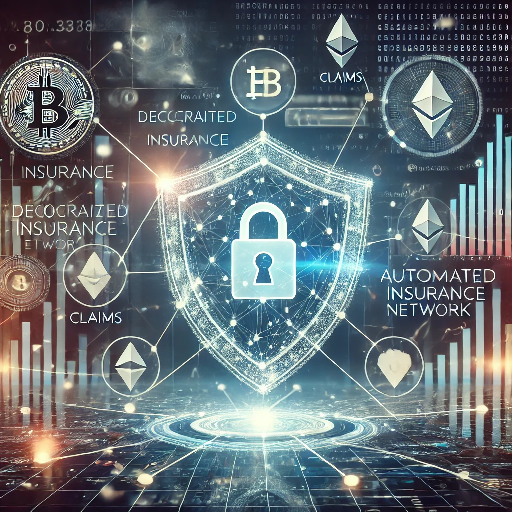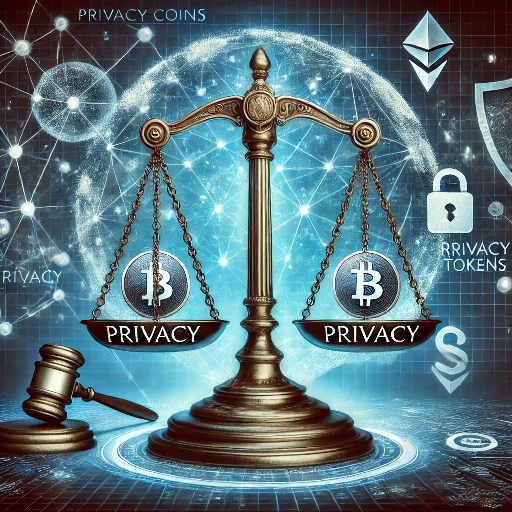Tokenization is transforming the way we interact with the digital economy, offering new possibilities for businesses, investors, and consumers. This innovative process converts assets into digital tokens on a blockchain, enhancing security, transparency, and accessibility. In this article, we will explore the fundamentals of tokenization, its benefits, challenges, and potential future applications.
Understanding Tokenization
Tokenization is the process of converting physical or digital assets into a digital token that can be stored, transferred, and recorded on a blockchain. Each token represents a specific asset, such as real estate, commodities, or intellectual property. These tokens can be bought, sold, or traded on various platforms, enabling fractional ownership and greater liquidity.
The core principle of tokenization lies in its ability to break down assets into smaller, divisible units. This fractional ownership democratizes access to high-value assets, allowing more people to invest in properties, artworks, or other valuable items that were previously out of reach. Additionally, tokenization leverages blockchain technology to ensure the security and immutability of transactions, reducing the risk of fraud and increasing trust among participants.
Benefits of Tokenization
Enhanced Liquidity
One of the primary advantages of tokenization is the enhanced liquidity it provides. Traditional assets like real estate and art are often illiquid, meaning they cannot be easily sold or traded without a significant loss in value. Tokenization allows these assets to be divided into smaller units, making it easier for investors to buy and sell their shares on secondary markets. This increased liquidity can lead to higher asset valuations and more dynamic investment opportunities.
Greater Accessibility of Tokenization
Tokenization democratizes access to investment opportunities. By breaking down high-value assets into smaller, more affordable units, a broader range of investors can participate in markets that were previously reserved for wealthy individuals or institutional investors. This inclusivity can help bridge the wealth gap and foster a more equitable financial ecosystem.
Improved Transparency and Security
Blockchain technology, which underpins tokenization, offers unparalleled transparency and security. Each transaction is documented on a decentralized ledger, ensuring it is tamper-resistant and easily auditable. This level of transparency can reduce fraud and increase trust among market participants. Additionally, blockchain’s cryptographic security ensures that tokenized assets are protected from hacking and other cyber threats.
Efficiency and Cost Savings of Tokenization
Tokenization can streamline various processes in asset management, reducing the need for intermediaries and lowering transaction costs. Smart contracts, self-executing contracts with the terms directly written into code, can automate tasks such as dividend payments and compliance checks. This automation can lead to significant cost savings and increased efficiency in managing tokenized assets.
Challenges of Tokenization
Regulatory Uncertainty
One of the biggest challenges facing tokenization is regulatory uncertainty. Different jurisdictions have varying regulations regarding digital assets, and navigating these complexities can be daunting for businesses and investors. Regulatory bodies are still developing frameworks to address the unique characteristics of tokenized assets, and this evolving landscape can create uncertainty and potential legal risks.
Technical Challenges
While blockchain technology offers numerous benefits, it also comes with technical challenges. Scalability, interoperability, and energy consumption are some of the issues that need to be addressed to fully realize the potential of tokenization. For instance, the energy-intensive nature of some blockchain networks, such as Bitcoin, has raised concerns about sustainability. Developing more efficient and scalable solutions is crucial for the widespread adoption of tokenization.
Market Acceptance
The using of tokens is still a relatively new concept, and widespread acceptance in traditional financial markets is gradual. Building trust and understanding among investors, businesses, and regulatory bodies is essential for the success of tokenization. Education and awareness campaigns can help demystify tokenization and highlight its benefits, encouraging more stakeholders to embrace this innovative approach.
Future Applications of Tokenization
Real Estate
The real estate sector holds significant promise for tokenization. By converting properties into digital tokens, investors can purchase fractional shares, making real estate investment more accessible and liquid. Tokenization can also simplify property management and transactions, reducing costs and increasing efficiency. For example, tokenized real estate platforms can automate rental payments, property maintenance, and compliance checks, streamlining the entire process.
Art and Collectibles
Tokenization can revolutionize the art and collectibles market by enabling fractional ownership and increasing liquidity. Artworks, rare coins, and other valuable items can be tokenized, allowing multiple investors to own a piece of a high-value asset. This can open up new revenue streams for artists and collectors while providing investors with diverse investment opportunities. Additionally, blockchain’s transparency can help authenticate and provenance art pieces, reducing the risk of forgery and fraud.
Financial Instruments
Using tokens can transform traditional financial instruments such as stocks, bonds, and commodities. By converting these assets into digital tokens, trading can become more efficient, transparent, and accessible. Tokenized financial instruments can also benefit from smart contracts, automating dividend payments, interest payouts, and other functions. This automation can reduce administrative costs and enhance the overall efficiency of financial markets.
Intellectual Property
Intellectual property (IP) rights can also be tokenized, providing creators with new ways to monetize their work. Musicians, writers, and artists can tokenize their IP, allowing fans and investors to purchase shares and receive royalties. This can create a more direct and transparent relationship between creators and their audience, fostering a more sustainable creative economy.
Supply Chain Management
Tokens can enhance supply chain management by providing greater transparency and traceability. Each step of the supply chain can be recorded on a blockchain, ensuring that all parties have access to accurate and up-to-date information. This can reduce fraud, improve efficiency, and enhance trust among supply chain participants. For example, tokenizing goods can help track their origin, movement, and ownership, ensuring authenticity and compliance with regulations.
Conclusion of Tokenization
The process is poised to revolutionize the digital economy by enhancing liquidity, accessibility, transparency, and efficiency across various sectors. While challenges such as regulatory uncertainty and technical issues remain, the potential benefits of tokenization are substantial. As blockchain technology continues to evolve and mature, we can expect to see more innovative applications of tokenization, transforming the way we interact with assets and investments. Embracing tokenization can lead to a more inclusive, efficient, and secure financial ecosystem, paving the way for a new era of digital finance.
















